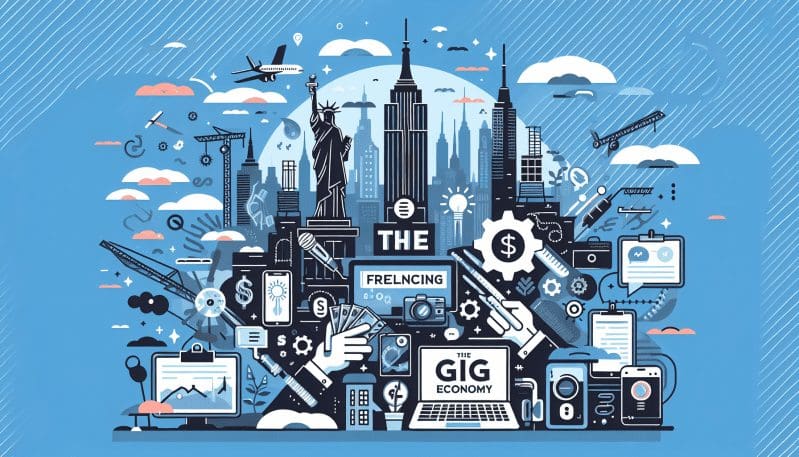In the heart of the bustling streets of New York, a quiet revolution is reshaping the contours of the workforce. The gig economy is rapidly expanding, and with it, the traditional notions of employment are being redefined. As the city that never sleeps adapts to this new era of work, both businesses and workers are confronting a landscape rife with opportunities as well as challenges.
The gig economy, characterized by short-term contracts or freelance work as opposed to permanent jobs, offers flexibility and autonomy, allowing individuals to choose when, where, and how they work. This setup can be particularly alluring for New York’s diverse population, offering a chance to balance the hustle of city life with personal and professional aspirations.
However, this trend also brings to the forefront issues of job security, benefits, and labor rights. Gig workers often find themselves without the safety net traditionally provided by full-time employment – think health insurance, retirement plans, and paid leave. The absence of these benefits can be particularly acute in New York, where the cost of living is high and the stakes are even higher.
Moreover, the classification of gig workers remains a contentious issue. Without clear legal recognition as employees, many gig workers may be unable to advocate for fair wages or safe working conditions, leaving them vulnerable to exploitation. New York, as a leader in workers’ rights, has the potential to set precedents in safeguarding gig economy workers while supporting the growth of this sector.
Businesses based in New York are also feeling the impact, as they adapt to a workforce that is increasingly mobile and less tied to traditional office settings. To attract and retain talent, companies may need to rethink their employment models, offering more flexible arrangements and competitive benefits for gig workers.
Policymakers, on the other hand, are tasked with navigating this new terrain by creating regulations that protect workers while fostering innovation and growth. It’s a fine balance to strike but one that is crucial for ensuring that the gig economy is equitable and sustainable.
To truly make the gig economy work for everyone involved, New York-based companies, workers, and policymakers must engage in ongoing dialogue. Collectively, they can explore solutions such as portable benefits, which would follow workers from job to job, or establishing gig worker collectives to provide a measure of job security and bargaining power.
The future of work in New York is unfolding in real-time, and the gig economy is a significant part of that story. As we navigate the challenges and celebrate the opportunities, one thing is clear: the traditional work model has been disrupted, perhaps irrevocably. For New York, a city renowned for its resilience and innovation, the gig economy could represent not just a shift in how work is done, but a reimagining of the social contract between employer and employee, crafted to fit the unique rhythm and requirements of the 21st century.




























